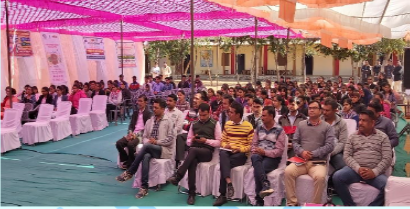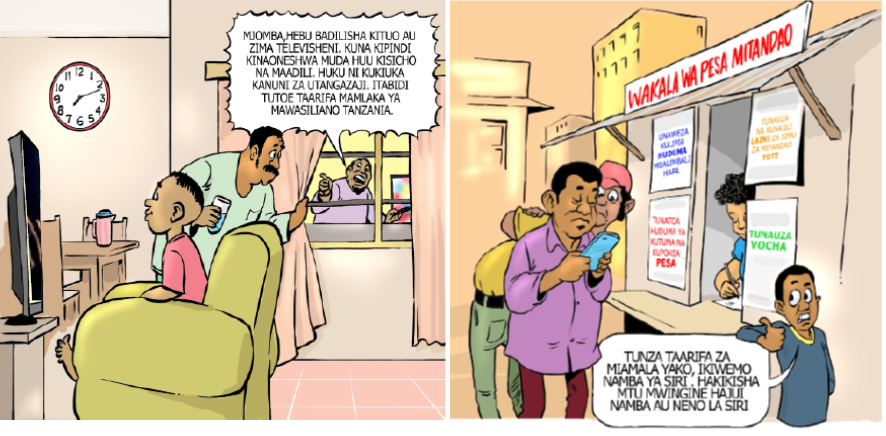Good practices in consumer outreach and education
20.08.2020Regulators’ roadshows

Source: TRAI consumer outreach newsletter, February 2020.
Many regulators recognize that even with the increasing availability of digital media, physical visits to different parts of their territory remain of great value in establishing human connections with ordinary consumers. The photo above is taken from an outreach event held by the Indian regulator, TRAI, in Jhunjhunu, Rajasthan in January 2020. It shows that such events can attract impressive audiences. TRAI had ten such outreach events planned to take place during February 2020.

Source: ICASA image gallery.
The South African regulator ICASA also has a roadshow programme. Of course, roadshows are not cheap to mount, especially if they include hired entertainers, and each regulator will need to consider their effectiveness in relation to its own aims and budget.
Audio and video from regulators
The combined utilities regulator in Jamaica, the Office of Utilities Regulation (OUR), regularly broadcasts five-minute radio information slots. OUR also has its own YouTube channel, including not just short informative video clips but also full length webinars, so that anyone interested can catch up on meetings they may have missed. It makes good use of its own signature tune and jingle, as does the regulator TCRA in Tanzania.
Educational materials from regulators

|
Speech bubble: “Keep records of your transactions, including your confidential code. Make sure the other person doesn’t know the passcode or password.” |
Speech bubble: “Ask him, let’s switch the channel on or off. There is a programme that is characterized by this immoral period. This is a violation of the rules of publicity. We will have to inform the Communications Authority in Tanzania.” |
Many regulators have produced various brochures and guides targeting consumers. Of particular note is the Tanzanian Guide for Consumers of Communications Products (60 pages, in Swahili); two of its humorous illustrations are copied above.
The Communication Authority of Kenya’s Mobile Phone Etiquette Brochure is an example of a reminder of consideration for others when using mobile phones.
Links with broader educational efforts
Most education authorities around the world recognize that both consumer education and digital literacy need to be part of school curriculums, and also available for adults who have missed out on these opportunities. Digital literacy is one aspect of online skills, which have become a necessity for employment in a wide range of jobs, as well as a prerequisite for higher education and often for active citizenship. It includes awareness of the sources and reliability of online materials, with a particular need to beware of fraudulent approaches (which can be very convincing) and misleading messages which may be forwarded in good faith through social media.
Often, young people take much more readily to electronic media than older people, and ensuring that they get a good grounding in all these matters at school, and take important messages home to their families, can be an effective approach. Regulators can play active roles by helping to produce suitable materials, and where feasible by visiting schools.
Last updated on: 19.01.2022